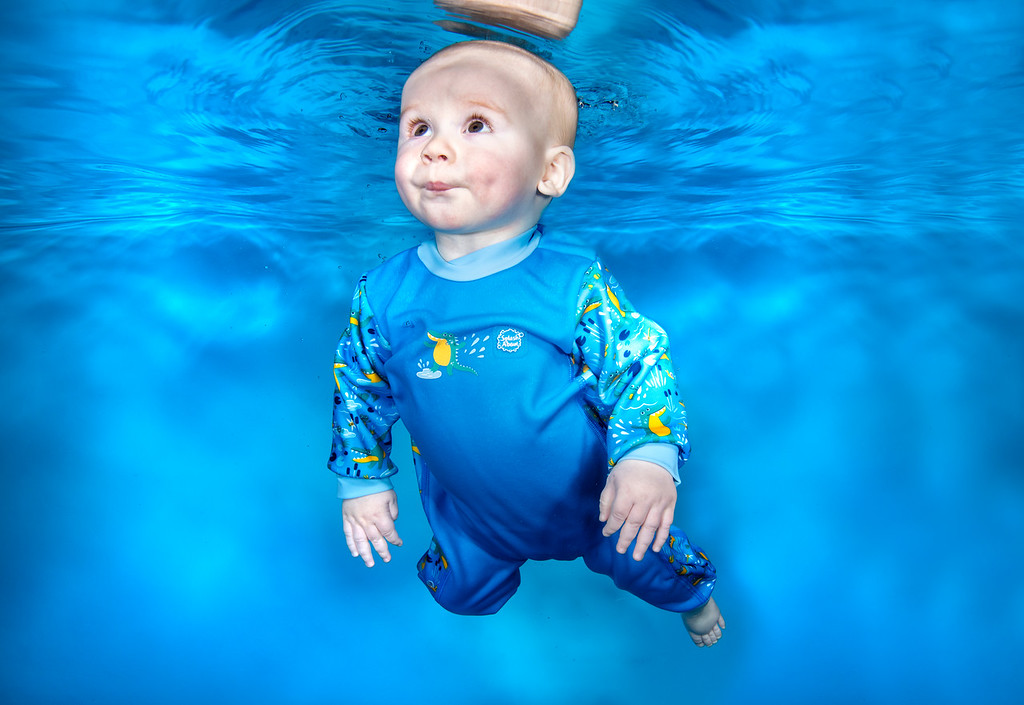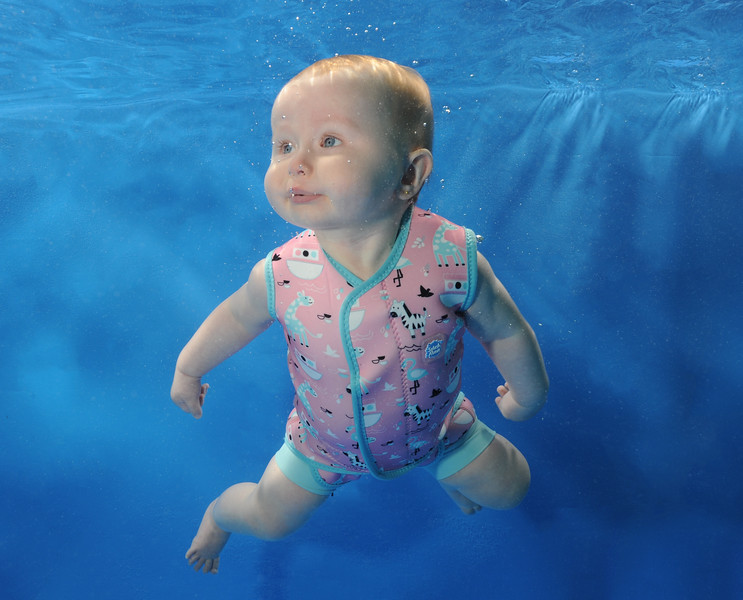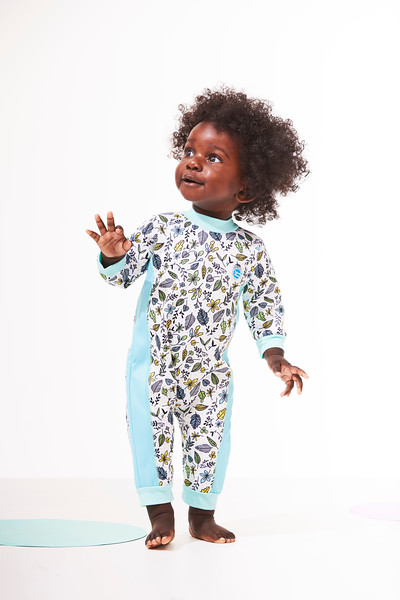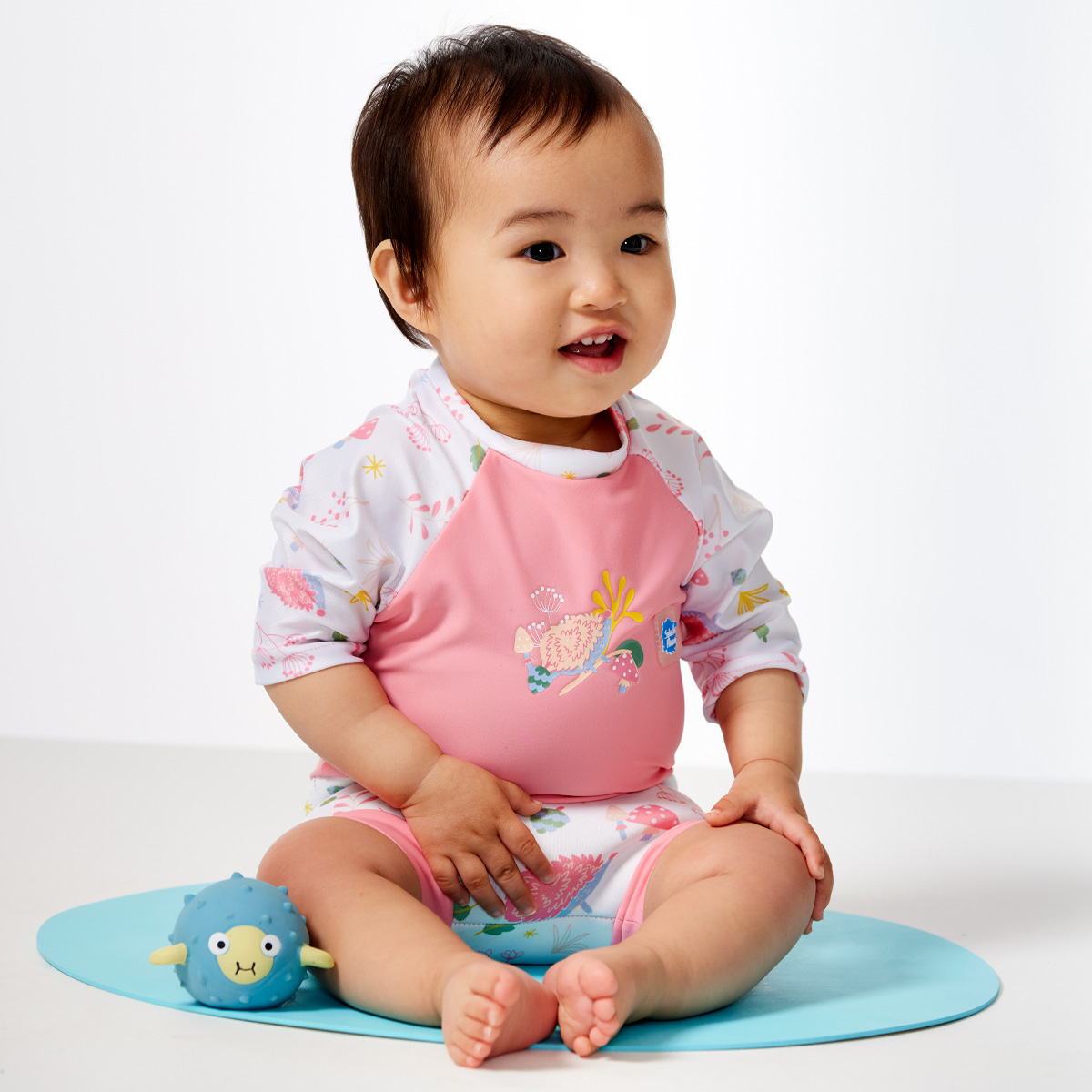Posted on 28th September 2018
Updated 10/01/2023
Protect your baby’s eczema from irritation at the swimming pool
How safe is it to take your baby with eczema swimming?
It is well documented that swimming is extremely beneficial for babies. It can help aspects of their growth and encourage positive behavioural developments such as confidence and patience, as well as improve balance and coordination. Despite this, the pool can be extremely daunting for parents of babies with eczema as some might worry that chlorine will aggravate the skin and cause infection. However, research shows that it can provide long and short-term health benefits. Although there are concerns to consider before taking the plunge, there are a variety of ways to help protect your baby’s skin before, during and after swimming.
Bernadette Spofforth, managing director at children and baby swimwear specialist Splash About, says: “Swimming can be a bit of a worry for parents of babies with eczema, which is understandable, but if you do your research you’ll find those fears can be put to rest and swimming can become an enjoyable experience for everyone.
“It is an important skill for anybody to master and having eczema doesn’t necessarily mean that learning how to swim isn’t a possibility for your child.”
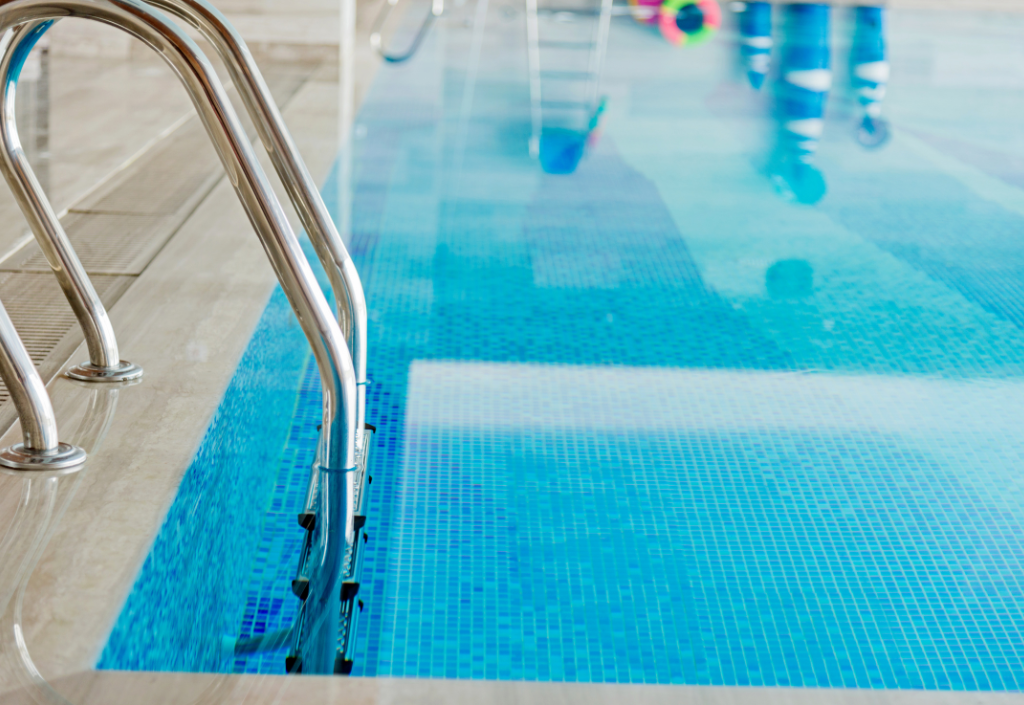

Research how the pool is cleaned
The majority of public swimming pools are cleaned with chlorine, which can make skin dry and cause aggravation. As part of an eczema and swimming factsheet, the National Eczema Society advises you to contact the facilities to find out what time they add the chlorine into the pool and to avoid swimming immediately afterwards. The higher the level of chlorine, the larger the risk of skin irritation.
Other options that can be kinder but are much more uncommon are pools containing ozone, which usually aren’t as drying to the skin, and salt water, which can be soothing but can also sting the skin if the child has broken skin.
When exploring each possibility, it is advised that you only spend a short amount of time in the pool in case it worsens your child’s condition.
“Unfortunately, it is trial and error to find the most suitable option for your baby’s skin. You may want to arrange a taster session with a swimming teacher, which most are happy to do,” Bernadette said.
Apply barrier cream and moisturiser
As swimming pool water can be quite drying due to the cleaning chemicals it contains, applying a generous amount of moisturiser an hour before can stop these chemicals from angering the skin. If a child has unhealed scratches, a barrier cream will help protect them from external irritants and infections. After leaving the pool and showering, apply moisturiser again.
Dr Adam Friedmann, from The Harley Street Dermatology Clinic, said : “Chlorine is quite an irritant to eczema, so often parents complain that the children get dramatically worse after swimming. Before swimming, I suggest applying a greasy moisturising cream all over the child, as this acts a little like a barrier and can prevent the chlorine irritating the eczema, whilst hydrating the skin.
“Ensure your child showers afterwards and moisturises well before getting dressed. I normally advise to wash the child using only creams, not soaps or detergent (EG aqueous cream, Dermol 500). Then, re-apply the child’s regular moisturiser immediately.
“I’d recommend when bathing or showering to use warm water, as hot water can make eczema worse, and keep baths/showers short as the skin can get irritated if kept in the water for too long.”
Use a protective wetsuit
A baby wetsuit is ideal for preventing children from scratching vulnerable areas of their body. Another benefit is that it will stop any barrier cream that is applied underneath the suit from being rubbed off or absorbed by the fabric. Equally, such suits allow parents to keep a firm grip of their child in the water. A wetsuit also helps protect the skin from abrasions due to the material on swimming floats, and from being in contact with other external irritants.
The Warm in One is a great baby wetsuit to consider. It covers the whole body so any barrier creams will be protected. It is lined in soft fleece which is comfortable against sensitive skin, and will keep your baby super warm too.
Our Amazon reviewers concur...
"I brought this because my daughter has eczema and I needed her body to be covered so that when swimming the water didn’t touch her skin. It worked amazingly, not only was she warm but her skin was protected and she was able to have fun in the water. She was comfortable and she was able to move freely in the water "
"I purchased this for my baby as recommended by her swimming lesson provider...We’ve used creams underneath for her eczema. It keeps her warm in the pool. It comes off easily when wet and comes out of the wash great. I couldn’t recommend it enough."
Water temperatures that help and hurt
Baby swimming classes are often held in warm temperatures, which are usually ideal for infants but not for eczema sufferers. Health experts warn that this can be drying to skin and worsen existing symptoms, while cooler water can be extremely soothing towards angry skin. Before taking your child, it is always worthwhile ringing the centre to find out the pool’s temperature.
Prevent itching at night
Many babies with eczema struggle to sleep due to their itchy skin and anything that can be done to change this is a huge help for parents. Recent findings discovered that for every hour of the day a child is inactive, three minutes are added on to the time it takes them to fall asleep. Swimming is a great way to get children active from a young age and although it isn’t guaranteed that they will sleep well every night, using the extra energy can improve sleeping patterns.
Short and long-term health benefits
Research shows that up to 80% of children with eczema develop asthma later in life. However, swimming can help control the symptoms by strengthening the heart and lungs.
Swimming can help irritated skin because chlorine kills the bacteria that develops infections. However, the National Eczema Society advises parents to avoid taking their child swimming if their skin is already infected or flaring badly.

